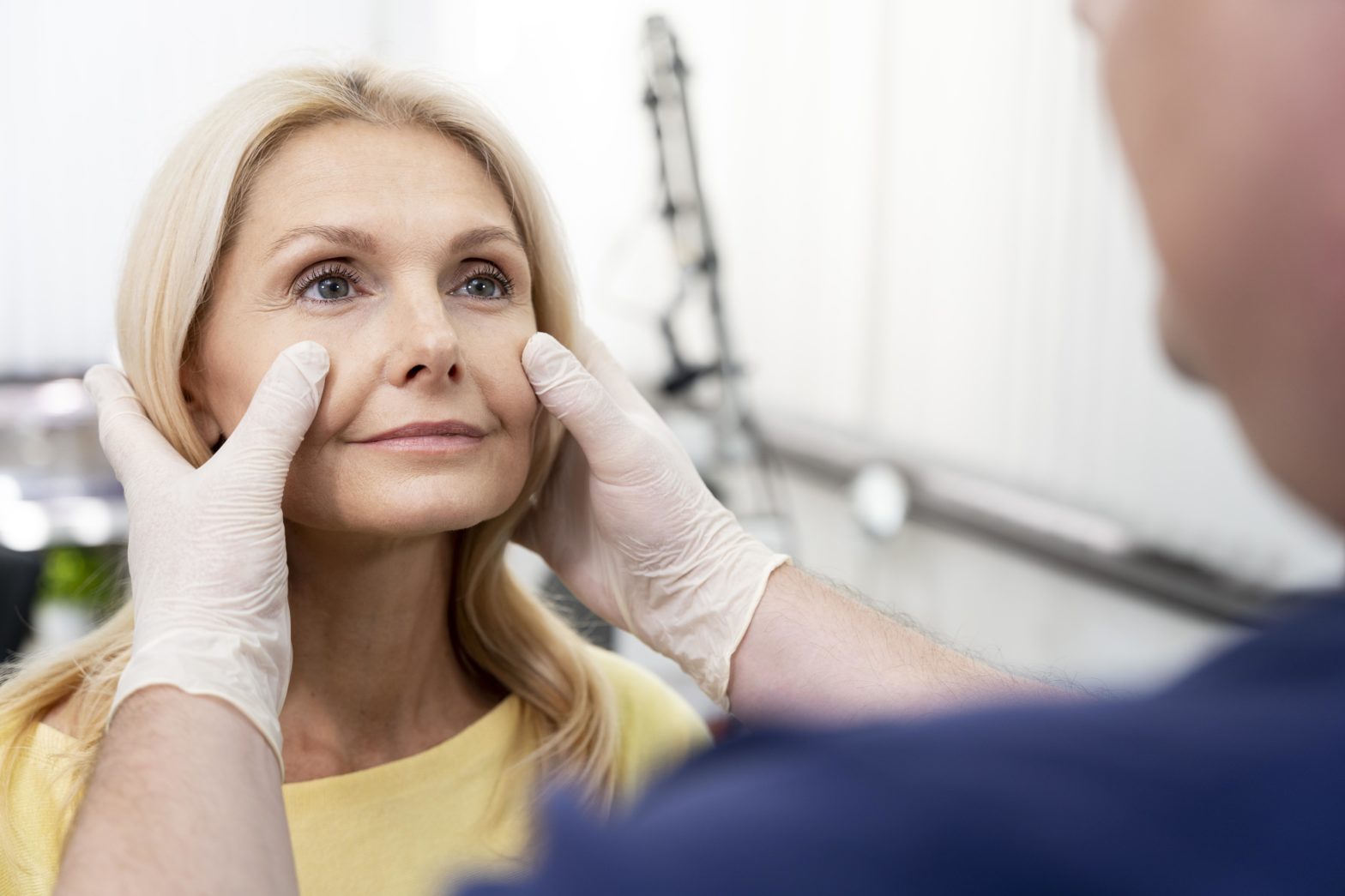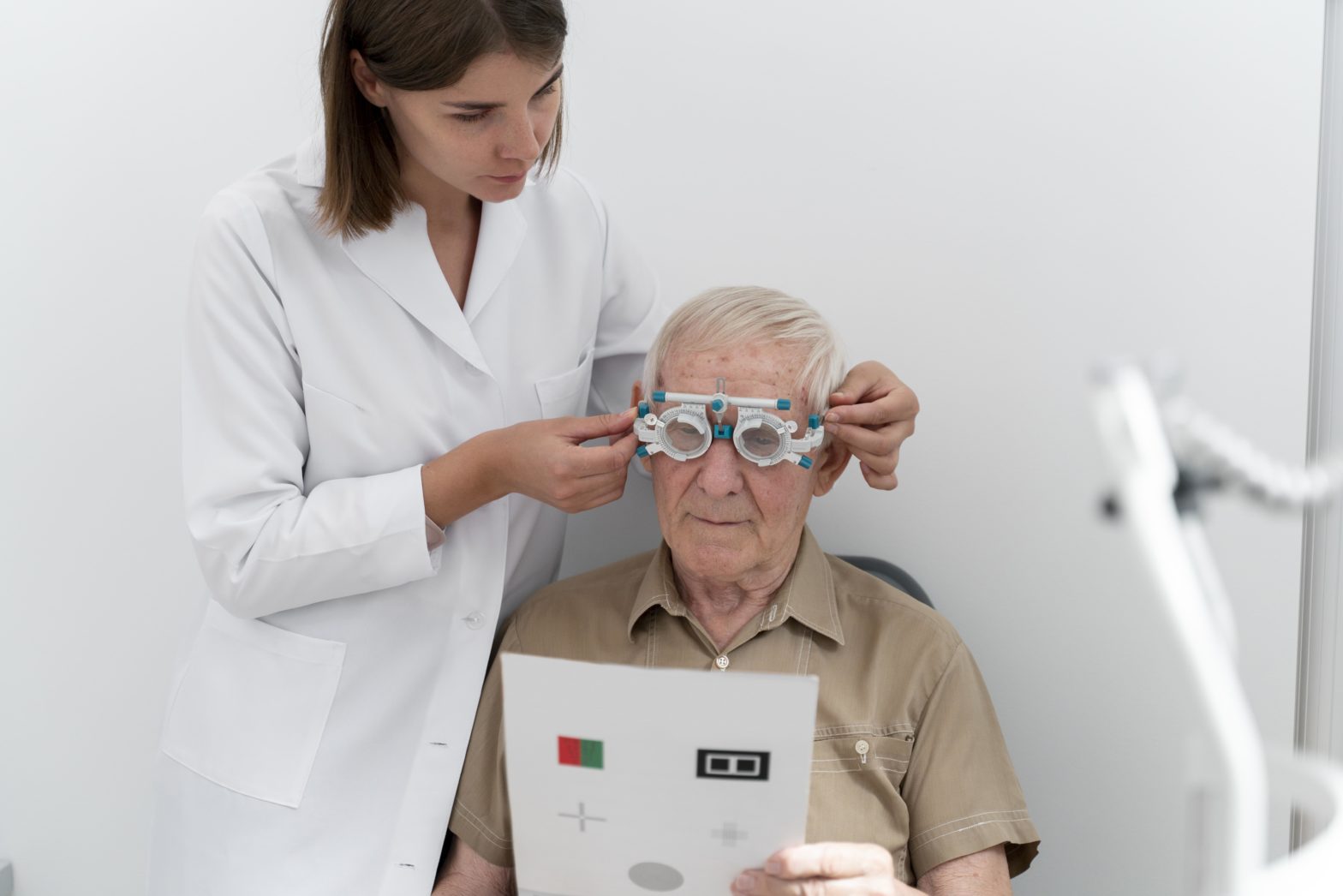A pinguecula is a common eye condition that affects the conjunctiva, the thin, transparent layer of tissue that covers the white part of the eye (sclera). This condition typically appears as a yellowish or white bump on the conjunctiva, near the cornea (the clear, front surface of the eye). While pinguecula are generally harmless, they can cause discomfort and affect vision in some cases. In this comprehensive guide, we will delve into the various aspects of pinguecula, including its symptoms, causes, treatment options, diagnosis, and preventive measures.
What are the Symptoms?
Pinguecula often do not cause any symptoms, and many people may not even realize they have one until a routine eye examination. However, when symptoms do occur, they may include:
-
Irritation: A pinguecula can cause a sensation of foreign body or grittiness in the eye, making it feel as though something is stuck in the eye.
-
Redness: The pinguecula itself may appear as a yellowish or white bump, but the surrounding area may become red or inflamed, particularly if it becomes irritated.
-
Dryness: Some people with pinguecula may experience dry eyes, which can lead to further discomfort and blurry vision.
-
Burning or Itching: Pinguecula can sometimes cause a burning or itching sensation in the affected eye.
-
Blurred Vision: In rare cases, pinguecula can grow large enough to interfere with the tear film and cornea, leading to blurry vision.
Causes of Pinguecula
- The exact cause of pinguecula is not definitively known, but several risk factors and contributing factors have been identified:
- UV Radiation Prolonged exposure to ultraviolet (UV) radiation from sunlight is considered a significant risk factor for the development of pinguecula. Protecting your eyes from UV rays by wearing sunglasses and wide-brimmed hats can help reduce this risk.
- Dry Climate Living in a dry, arid climate with low humidity may increase the likelihood of developing pinguecula, as it can lead to chronic eye irritation and dryness.
- Ageing Pinguecula becomes more common with age, particularly in individuals over 40.
- Environmental Factors Dust, wind, and other environmental irritants can contribute to the development of pinguecula, especially in individuals who are exposed to these factors regularly.
- Occupational Exposures Certain occupations, such as farming or construction work, may increase the risk of developing pinguecula due to increased exposure to environmental elements.
Diagnosis
Pinguecula are typically diagnosed during a comprehensive eye examination by an optometrist or ophthalmologist. The eye care provider will use a slit lamp to closely examine the eye’s surface, including the conjunctiva and cornea. This examination helps in confirming the presence of a pinguecula and assessing its size and appearance.
Treatment
In most cases, pinguecula does not require medical treatment. However, if symptoms are bothersome or if the pinguecula becomes inflamed, the following treatments may be recommended:
-
Artificial Tears: Lubricating eye drops (artificial tears) can help relieve dryness and irritation associated with pinguecula.
-
Anti-Inflammatory Medications: In cases of inflammation, non-prescription or prescription anti-inflammatory eye drops may be prescribed.
-
Surgery: Surgical removal of a pinguecula is rare and is typically considered only when it causes significant discomfort, vision problems, or if it grows large enough to threaten the cornea.
What are the Preventive Measures for Pinguecula?
To reduce the risk of developing pinguecula, consider the following preventive measures:
-
Wear Sunglasses: Protect your eyes from UV radiation by wearing sunglasses that block both UVA and UVB rays.
-
Use Lubricating Drops: If you live in a dry or windy environment, use lubricating eye drops to keep your eyes moist and reduce irritation.
-
Wear Eye Protection: If your occupation or hobbies expose you to dust or other irritants, wear protective eyewear, such as goggles or safety glasses.
-
Maintain Eye Health: Visit your eye care provider regularly for comprehensive eye exams to monitor your eye health and detect any eye conditions early.
Choosing the Right Hospital For Your Eye Care
When it comes to selecting the right eye hospital for your vision-related needs, several crucial factors should be taken into account. It’s essential to opt for a hospital with a solid reputation, often substantiated by positive feedback from patients. Dr. Agarwal’s Eye Hospital, for instance, has gained recognition for its exceptional expertise and the provision of top-notch care.
One significant consideration is specialisation – ensure that the hospital’s focus aligns with your specific eye condition or required treatment, whether it involves cataract surgery, laser procedures, or managing retinal disorders. It’s equally vital to assess the qualifications of the medical staff and the hospital’s technological advancements and equipment. Additionally, prioritising aspects like patient comfort, hygiene, and the overall experience is essential. Furthermore, don’t hesitate to get in touch with our specialists today at 9594924026 or 080-48193411 to explore more about the services and offerings at Dr. Agarwal’s Hospital.









